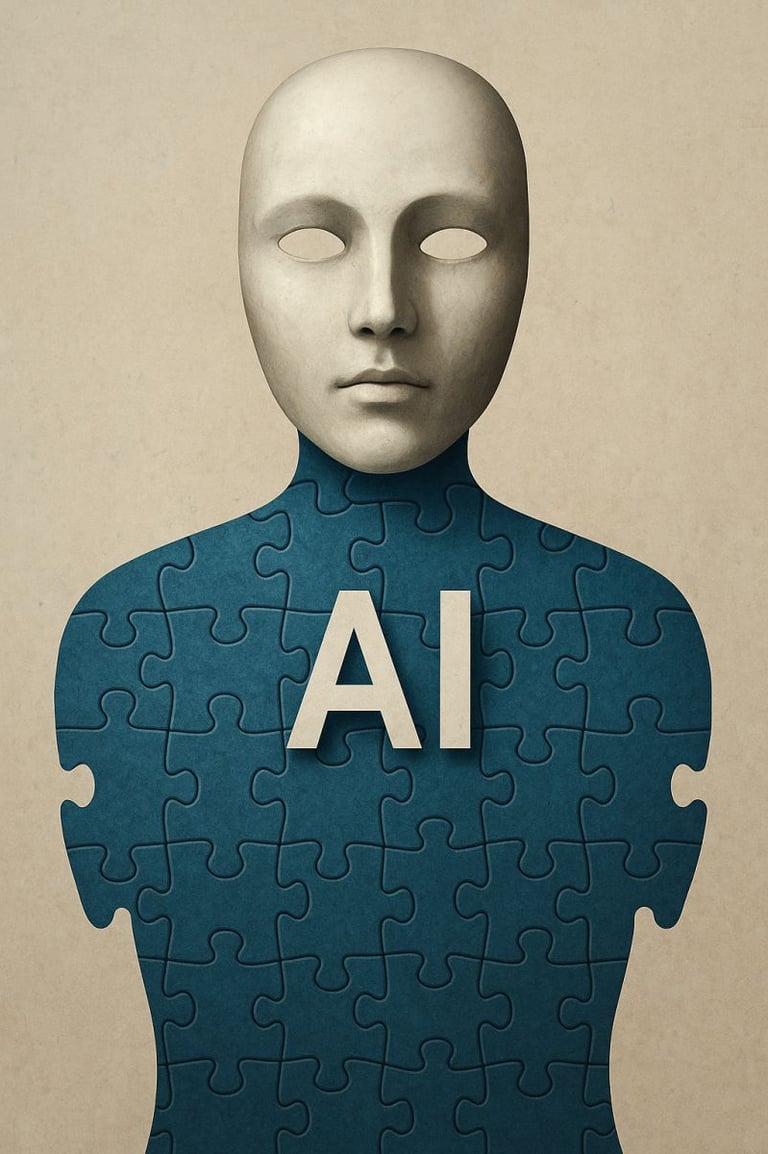"A little knowledge is a dangerous thing.”
Eugenia Anastassiou
9/16/20252 min read
Alexander Pope wrote that in 1711 in An Essay on Criticism. He was warning against shallow learning dressed up as expertise. Three centuries later, it feels as though he foresaw the age of large language models.
Today’s LLMs and GPTs are extraordinary feats of engineering, but they are also the epitome of “a little knowledge.” They scrape oceans of text, but what they offer back is partial, probabilistic and often based on shaky or unverified sources.
They aren’t sages but synthesisers, drawing patterns from fragments. The problem is that fragments, when dressed up in fluent sentences, create the illusion of erudition.
That illusion is powerful. It leads to a false sense of expertise, both in the technology itself and in those who wield it.
We’ve already seen how this plays out:
• People over-relying on AI for personal problems, sometimes with tragic results.
• Organisations believing AI can replace people wholesale, expecting higher productivity for less cost. Only to discover that nuance, judgement and context cannot be automated away.
• Companies rushing to deploy the “wrong” AI because it looked shiny or promised quick wins.
This is Pope’s warning made flesh. A tool that knows a little about everything risks being a master of nothing. And in human hands, that “little” knowledge can quickly become dangerous.
But let’s not misunderstand: the answer isn’t to demonise AI. These models are clever, useful and even inspiring. They can accelerate research, help us navigate complexity, draft first versions of work that humans then refine and they make impressive assistants.
What they cannot be, and must not be mistaken for, are experts, strategists or decision-makers.
This is why human oversight is essential. Guardrails aren’t bureaucratic red tape; they are the difference between responsible use and reckless faith. Critical thinking, scepticism and the ability to ask “why” and “what if” remain uniquely human advantages. Without them, we risk outsourcing our judgement to machines that have none.
The truth is, we are in danger of believing that because an AI sounds confident, it is confident. Because it strings words together persuasively, it must know. But prediction is not knowledge. Coherence is not comprehension. And wisdom is most certainly not autocomplete.
The challenge for us is to master these tools rather than be mastered by them. To treat them as partners, not replacements. To understand that AI can aid us, but it cannot stand in for the way humans acquire and sharpen knowledge, creativity, empathy and expertise.
The stakes are high.
If we bury our heads in the sand and pretend AI solves everything, we will find ourselves blindsided by its shortcomings. If we treat it as an all-knowing oracle, we will forget what it means to think for ourselves.
Pope’s warning has never been more relevant: a little knowledge was dangerous in 1711.... in 2025, it could be ruinous


Connect
Get in touch for collaborations and inquiries.
eugenia@anastassiou.org
© 2025. All rights reserved.